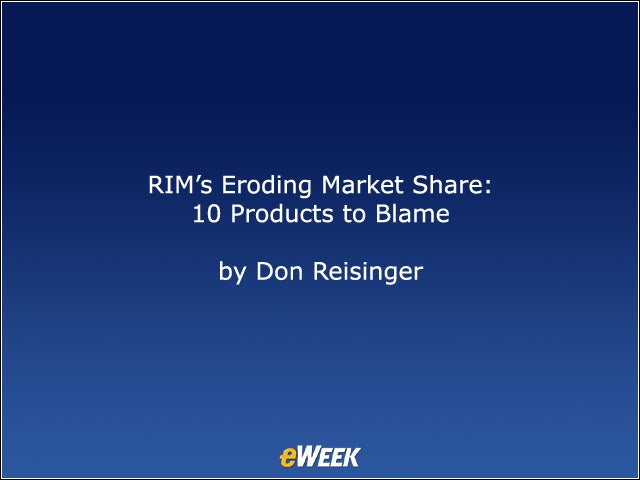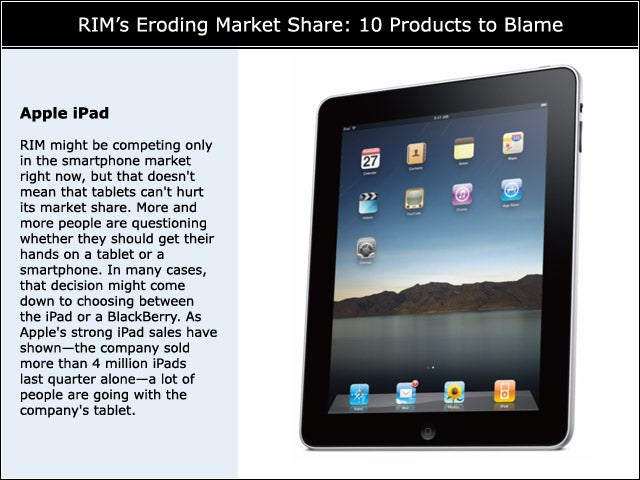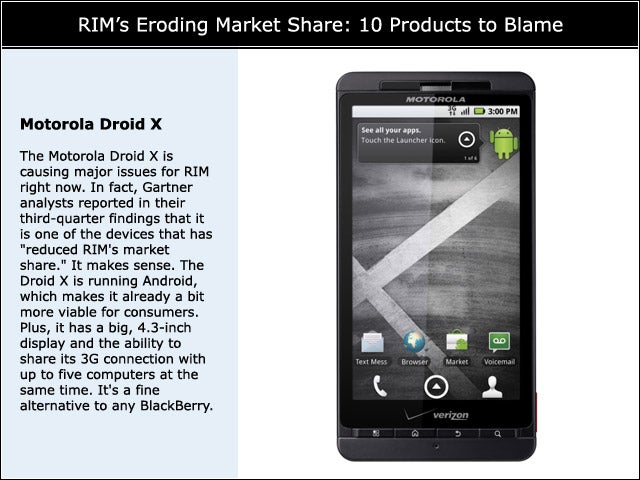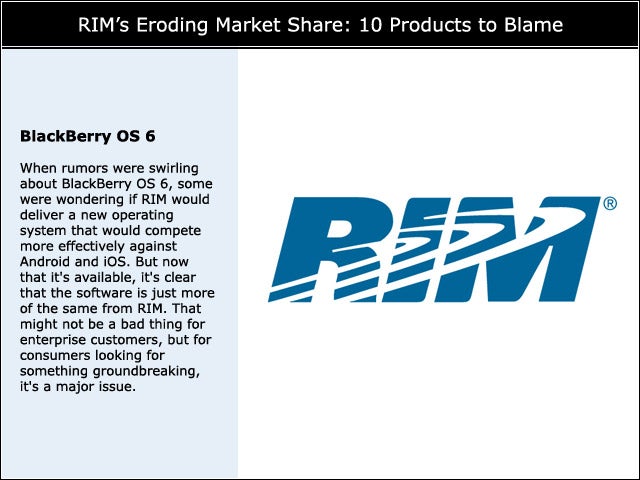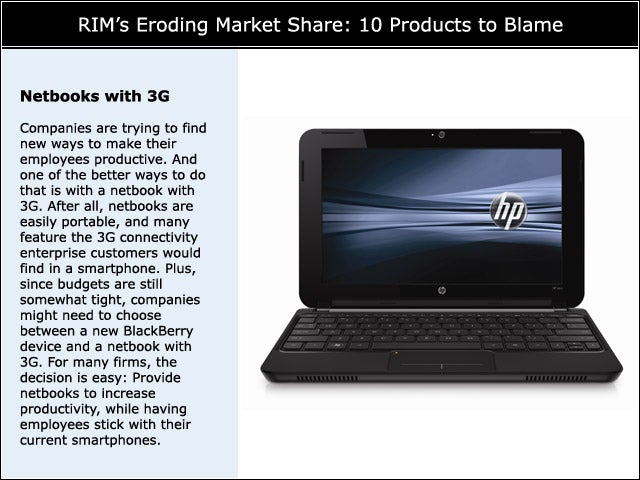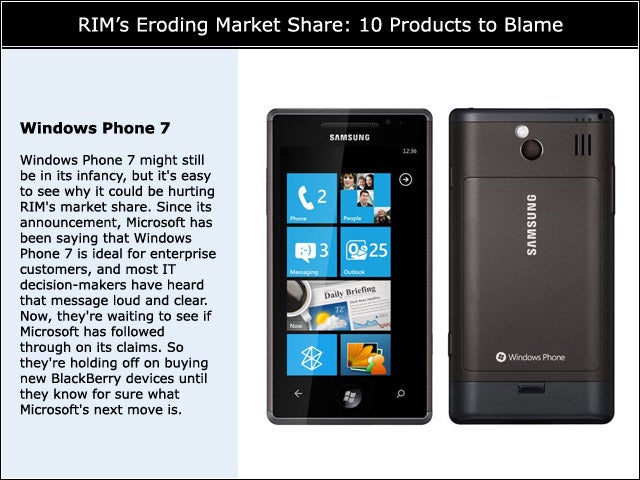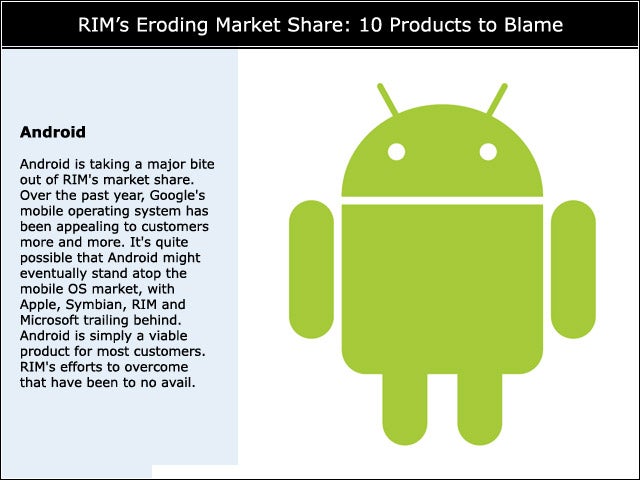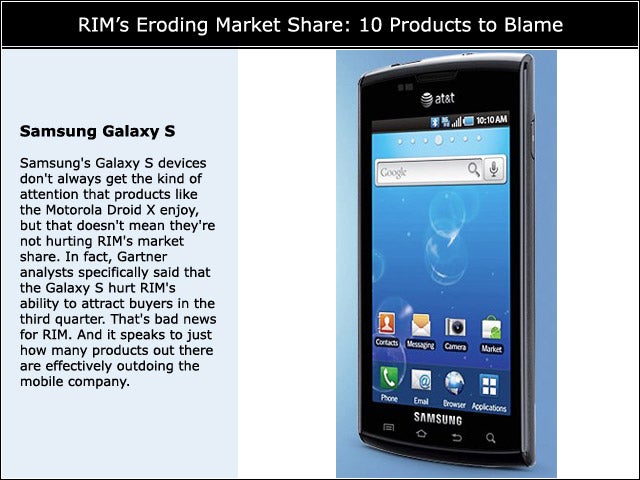eWEEK content and product recommendations are editorially independent. We may make money when you click on links to our partners. Learn More.
2Apple iPhone 4
As Gartner clearly illustrated in its most recent quarterly market share findings, Apple’s iPhone 4 continues to be a problem for RIM. The device is arguably one of the most capable devices on the market. And it appeals to customers, thanks to its nice touch screen, front-facing camera that allows for video conferencing and affordable price tag. The iPhone 4 is leading the way in the smartphone space, and so far RIM hasn’t been able to respond.
3Apple iPad
RIM might be competing only in the smartphone market right now, but that doesn’t mean that tablets can’t hurt its market share. More and more people are questioning whether they should get their hands on a tablet or a smartphone. In many cases, that decision might come down to choosing between the iPad or a BlackBerry. As Apple’s strong iPad sales have shown—the company sold more than 4 million iPads last quarter alone—a lot of people are going with the company’s tablet.
4RIMs PlayBook
RIM’s PlayBook tablet might not be available just yet, but it might be affecting the company’s BlackBerry market share more than some think. As mentioned, tablets are all the rage right now in the mobile market. For some folks—including companies that are loath to spend more than they need to—waiting to see what the PlayBook offers before replacing a BlackBerry smartphone might be their most desired option right now.
5Motorola Droid X
The Motorola Droid X is causing major issues for RIM right now. In fact, Gartner analysts reported in their third-quarter findings that it is one of the devices that has “reduced RIM’s market share.” It makes sense. The Droid X is running Android, which makes it already a bit more viable for consumers. Plus, it has a big, 4.3-inch display and the ability to share its 3G connection with up to five computers at the same time. It’s a fine alternative to any BlackBerry.
6RIM BlackBerry Storm2
RIM realizes that touch screens are very important in today’s consumer market. That’s precisely why it released the original BlackBerry Storm and then the Storm2. But neither device works all that well. Plus their touch screens are abysmal compared with the iPhone 4’s. They have hurt rather improved RIM’s credibility among those who desire touch screens. It’s undoubtedly hurting the company’s market share.
7BlackBerry OS 6
When rumors were swirling about BlackBerry OS 6, some were wondering if RIM would deliver a new operating system that would compete more effectively against Android and iOS. But now that it’s available, it’s clear that the software is just more of the same from RIM. That might not be a bad thing for enterprise customers, but for consumers looking for something groundbreaking, it’s a major issue.
8Netbooks with 3G
Companies are trying to find new ways to make their employees productive. And one of the better ways to do that is with a netbook with 3G. After all, netbooks are easily portable, and many feature the 3G connectivity enterprise customers would find in a smartphone. Plus, since budgets are still somewhat tight, companies might need to choose between a new BlackBerry device and a netbook with 3G. For many firms, the decision is easy: Provide netbooks to increase productivity, while having employees stick with their current smartphones.
9Windows Phone 7
Windows Phone 7 might still be in its infancy, but it’s easy to see why it could be hurting RIM’s market share. Since its announcement, Microsoft has been saying that Windows Phone 7 is ideal for enterprise customers, and most IT decision-makers have heard that message loud and clear. Now, they’re waiting to see if Microsoft has followed through on its claims. So they’re holding off on buying new BlackBerry devices until they know for sure what Microsoft’s next move is.
10Android
Android is taking a major bite out of RIM’s market share. Over the past year, Google’s mobile operating system has been appealing to customers more and more. It’s quite possible that Android might eventually stand atop the mobile OS market, with Apple, Symbian, RIM and Microsoft trailing behind. Android is simply a viable product for most customers. RIM’s efforts to overcome that have been to no avail.
11Samsung Galaxy S
Samsung’s Galaxy S devices don’t always get the kind of attention that products like the Motorola Droid X enjoy, but that doesn’t mean they’re not hurting RIM’s market share. In fact, Gartner analysts specifically said that the Galaxy S hurt RIM’s ability to attract buyers in the third quarter. That’s bad news for RIM. And it speaks to just how many products out there are effectively outdoing the mobile company.
